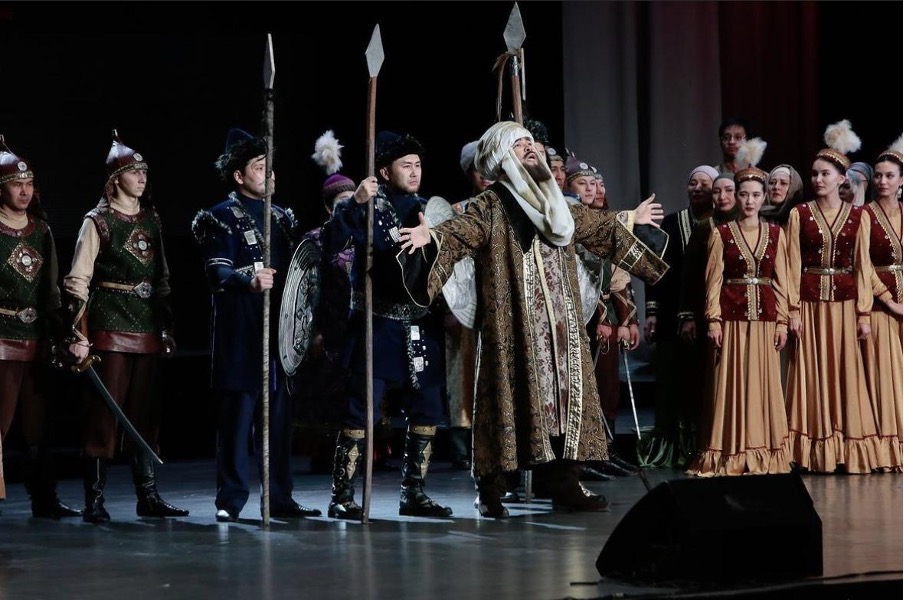
Photos provided by the Press Service of the State Academic Philharmonic named after E.Rakhmadiev
The history of the opera's creation dates back to 2003. At that time, Aitkali Zhaiymov led the Kurmangazy Folk Instrument Orchestra. One day, the artists were invited to perform in the city of Atyrau in honor of the opening of the monument to the great Sultan. A friend of the composer, a famous Kazakhstani singer, also went with the orchestra, Gafiz Yesimov. Especially for the performance in Atyrau, Aitkali Zhaiymov wrote music in which he expressed the commander's longing for the Kipchak steppes.
«When the poet Nurali Azhgali lived in Atyrau. We contacted him and offered to write the words to the music. We arrived in Atyrau a few days earlier. While I was rehearsing with the orchestra, Gafiz and Nurali sat down nearby to compose words. They succeeded in a short period of time. And already at the concert we performed the finished work," - Aitkali Zhaiymov shared his memories .
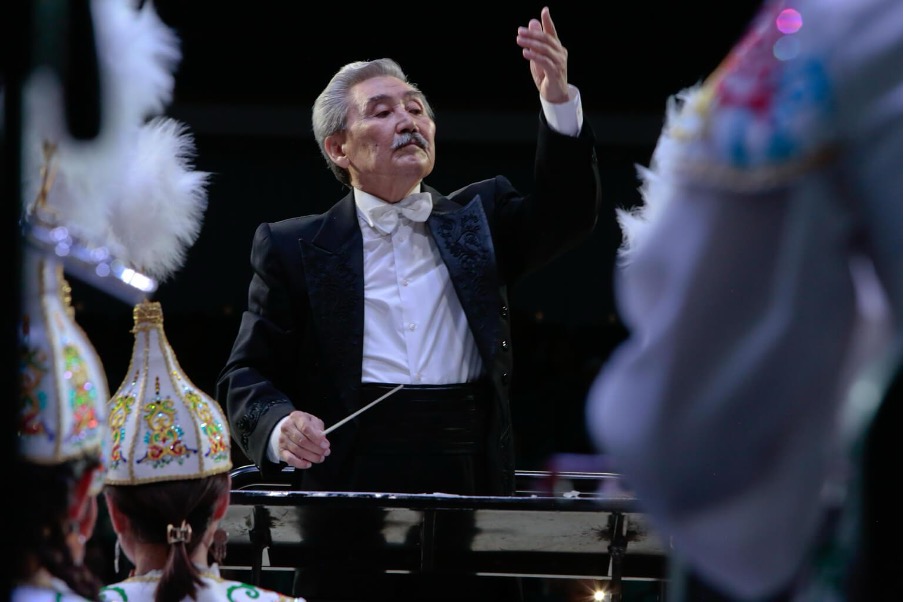
The song, written for a concert in Atyrau, became the basis for a new opera. After returning from Atyrau, Gafiz Yessimov suggested Aitkali Zhayimov to revisit this topic and dedicate an already large-scale musical canvas to the legendary ruler. The libretto was co-authored by the famous poet Ulykbek Esdaulet. Over time, the son of Aitkali Zhaiymov, Arman Zhaiym, joined the work on the creation of the opera. The young composer and pianist completed his studies at Kurmangazy Kazakh National Conservatory and managed to write a lot of works.
"When I joined the work, two acts were almost ready. I started adding something of my own that I felt. My father and I are representatives of different generations, but he never insists on his own, does not impose opinions, always listens",-Arman Zhaiym noted .
In search of inspiration, the authors turned to historical materials, books, films and TV series. Sultan Beybarys is a person with an amazing destiny. A native of the Kipchak steppes was sold into slavery in Damascus. He became the property of the ruler of Egypt, Sultan Al-Salih, and became a Mamluk slave who converted to Islam and underwent military training. Beybarys turned out to be a brilliant horseman and a talented warrior. He won his major victory already as an army commander. Rebelling against the ruler's injustice, he seized power with other Mamluks and became the sultan of Egypt. In addition to Sultan Baybars, other historical figures were added to the plot of the opera. Among them is the French king Louis IX, who led the crusade to Egypt in 1250. Then Baybars managed to defeat the enemy and take Louis prisoner. The character Kalauyn is also present in the opera, who, according to some sources, was a vizier and put poison in the sultan's koumiss.

"We have added fictional characters such as Kundyk and Aidan to the plot. Kundyk is Kalauyn's assistant, constantly whispering thoughts to the vizier about the murder of the sultan. He knows that Kalauyn is jealous of the ruler, since he himself also came to Egypt as a slave. Aidan is the image with which we wanted to show the Sultan's connection with his homeland. The girl was captured and brought to Baybars as a gift. She tells that she was born in the Kipchak steppes, recalls her story. Together with Baybars, they perform a lyrical duet, the sultan offers her to live in the palace, treats her like a daughter. He promises to let her go when Khan Berke's ambassadors arrive. Thinking over the image of each character, we wrote the appropriate music. For the image of Louis, ancient romances of the 15th century were studied. There is something choral and ecclesiastical in his music. It was necessary to show the image of a noble crusader commander. We studied Egyptian themes, oriental motifs, and their rhythms. But the basis is still our national one, because Beybarys comes from our steppes," Arman Zhaiym explained.
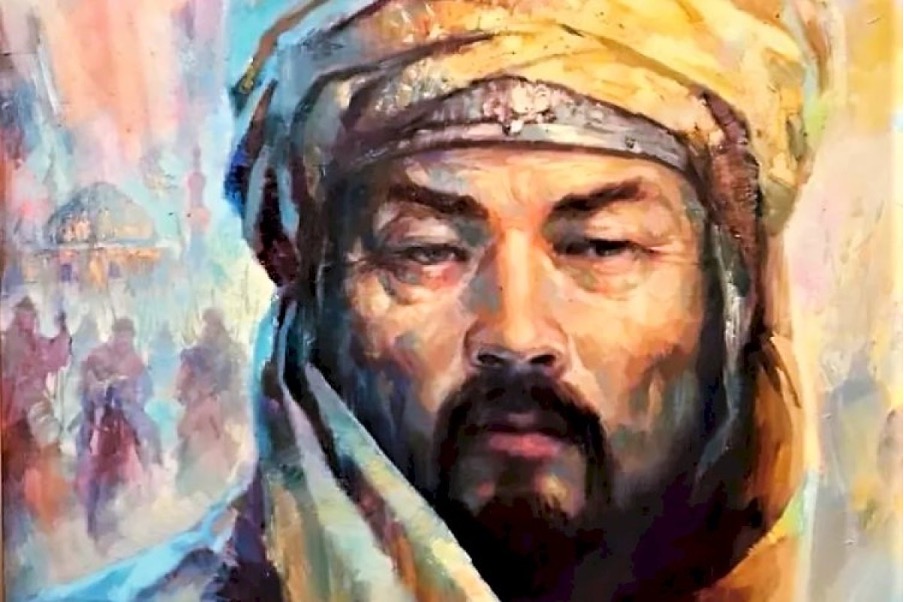
According to historical sources, Sultan Baybars created a postal network, built canals, established trade, and financed scientists, architects, and artists. The merits of the great ruler are reflected in the plot of the opera. Beybarys releases Louis IX and gives Aidan the opportunity to return home with the ambassadors. However, following the generous deeds of the Sultan, a tragic ending comes.
"When I wrote music, I got used to images. For example, Kalauyn is considered a negative hero. But I wanted to look at this story through his eyes, to understand what his tragedy is, to describe everything in musical language. When Kalauyn sings his aria, he reflects on the fact that he failed to persuade Louis to go against Baybars, and that he also failed to come to an agreement with Aidan. He envies the Sultan, because in his place, he could have been himself. Kalauyna's aria requires great skill from the performer. Here is the lyrical beginning, when he suffers, considers himself a victim. Then the character starts to spur himself on, wants to find a solution in this situation. And at the end of the aria, he already remembers that Kundyk advised to put poison in the sultan. The music takes on an ominous character. So, during only one aria, the artist must visit three emotional states. This should be shown both by facial expressions, and by playing, and most importantly, by voice", Arman Zhaiym noted .
Beybarys, poisoned by poison, sings the final aria, which the authors wrote back in 2003. The hero longs for his native steppes, wanting to see them for the last time. The aria of Baybars has been performed more than once at concerts and productions Gafiz Yessimov, Shakhimardan Abilov, Azamat Zheltyrguzov. At the premiere of the updated version of the opera, the role of sultan was entrusted to Altynbek Abilda.
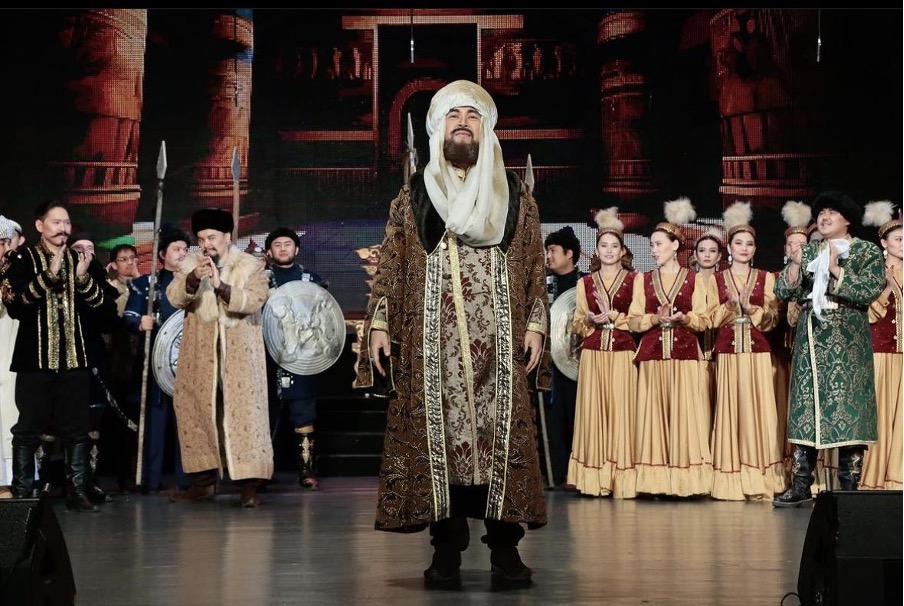
The opera "Beybarys" is also unique in that it is performed by Kazakh Orchestra. Aitkali Zhaiymov has been leading this renowned team for many years, which includes Kazakh national instruments. Initially, the opera was written for a symphony orchestra, but then over time it was adapted for a folk group.
"Of course, a symphony orchestra and a folk orchestra are two different worlds. The principle of orchestration is the same, but the instruments and possibilities are completely different. In a folk orchestra, the instruments sound, as a rule, quieter, not like in a symphony orchestra, in which different groups can play in turn. For example, only a string band plays, or only a wooden one. In folk, the whole orchestra usually plays. This is due to the lack of sound, because if some instruments stop playing, it will immediately affect the power. Here we are already bringing one group to the foreground, and the other to the second, and so we change it. Due to this, we make the necessary roll calls. This is why the folk orchestra is more difficult for composers. It is necessary to know the nature of folk instruments very well in order to orchestrate. But in the folk group there are timbres that are not present in the symphonic. For example, the kyl-kobyz has a peculiar timbre, despite the fact that it is stringed and somewhere similar to the viola. In a symphony orchestra, the viola or cello cannot give the timbre of the kyl-kobyz. This, of course, is the advantage of the folk orchestra - special timbres," Arman Zhaiym told .
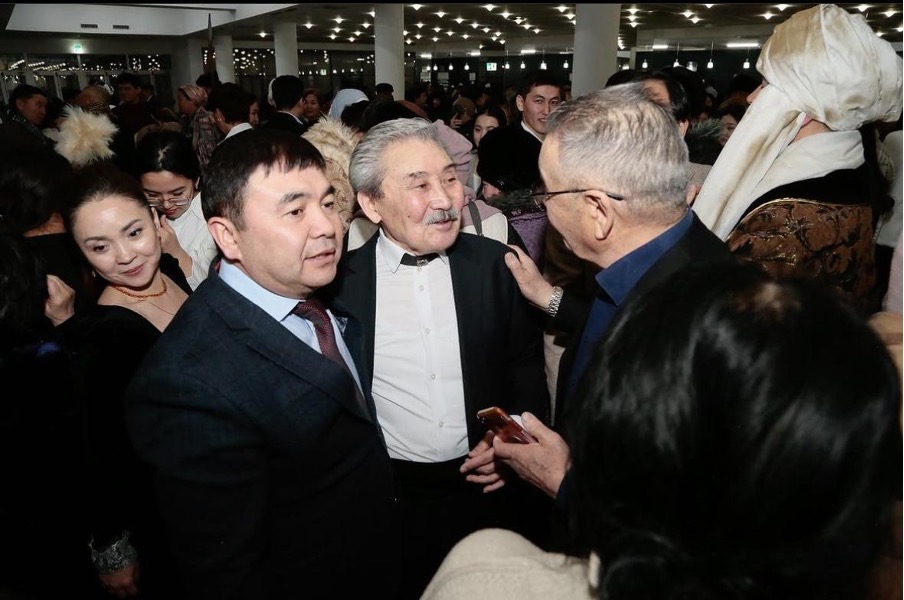
The production brought together on one stage almost all the collectives of the Moscow Philharmonic: the soloists of the classical vocal department, the Chamber Choir, the folk dance ensemble "Shalkyma" and, of course, the Kazakh Orchestra. The performance was also attended by invited artists - dance ensembles of the National Guard and the National Military-Patriotic Center. Only a part of the family heritage of Kazakhstani composers was presented to the audience. Together, the authors wrote another ballet "Alpamys", the opera "Akbobek", music for the 350th anniversary of Tole Bi and much more. Working in tandem, father and son, representatives of different generations, create works about traditional values in a modern musical language.









